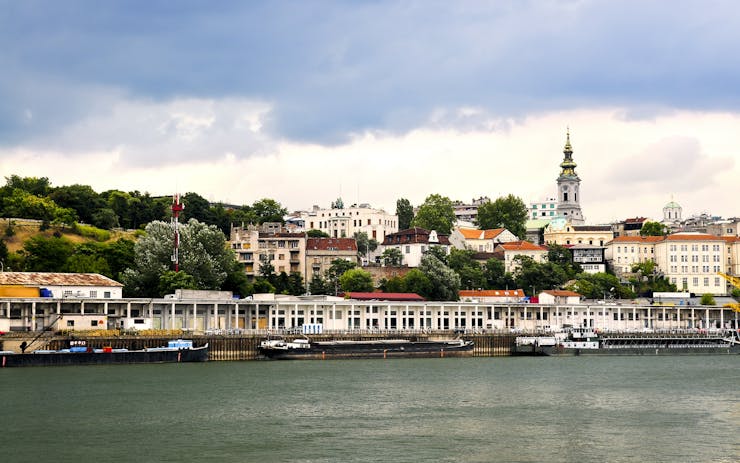Life in Serbia, the largest and most populous country to emerge after the breakup of communist Yugoslavia in 1991, can still be a challenge for some. The nation’s drug laws are strict, as made clear recently when a leading cannabis advocate, scheduled to give public testimony on the plant’s therapeutic powers, was jailed before he could make his legalization plea.
Patient and activist Dragan Alargić, known by many as the “Balkan cannabis hero,” has been fighting for legalization for several years. When arrested, he was gearing up for what appeared to be a big step forward in Serbian perceptions of medical cannabis.
Alargić is a founding member of the Initiative for Change of Cannabis Laws (IRKA), a nonprofit organization founded in 2013, and one of the most visible patient advocates in southeast Europe. He helped organize the first seminars in Serbia attended by world-renowned cannabis researchers and health professionals, such as Canadians Rick Simpson and Paul Hornby, American molecular biologist Robert Melamede, and Czech chemist Lumír Hanuš, who discovered the so-called bliss molecule in cannabis, anandamide.
Alargić himself has a serious heart illness and kidney cancer and takes cannabis oil on a daily basis—which is what landed him in hot water with authorities. On Dec. 13, 2016, police broke into Alargić’s apartment, finding an alleged three ounces (100 grams) of dried cannabis buds. They promptly arrested him.
“Although police knew all about his activities, Dragan had been arrested just a few days before the beginning of a new public hearing about a new cannabis law—where he was supposed to testify,” said Milos Simic, who co-founded IRKA with Alargić. “He’s been in custody for nearly a month now as if he were some dangerous criminal. And he is facing three years in prison.”
“If this draft becomes law, thousands of Serbians would continue to suffer.”
The public hearing was a step toward the country’s drafting of a new cannabis bill. It began Dec. 26 and has already drawn heavy criticism from activists.
First, IRKA and other NGOs were refused the right to participate in the debate. Then it emerged that the preliminary draft bill is actually more repressive than the current law, which recognizes THC—although not the cannabis plant as a whole—as a “psychoactive medicine.” As such, allows medicinal use of pharmaceuticals Marinol and Sativex, although both are so expensive that few have interest in importing them.
“The new draft actually prohibits any kind of cannabis—even the use of the word itself—as well as the production of hemp,” said another IRKA member, Gradimir Veljkovic. “If this draft becomes law, thousands of Serbians would continue to suffer and engage in ‘criminal’ activities.”
To counter this trend, IRKA has been organizing meetings, workshops, and panel discussions, as well as participating in regional and international conferences. “We have also filmed over a hundred patient testimonies of successful cannabis treatments, more than any other NGO in Europe,” Simic said. Serbian media, however, don’t pay much attention to such efforts, and most in the country still fear cannabis because of its classification as an illegal drug.




